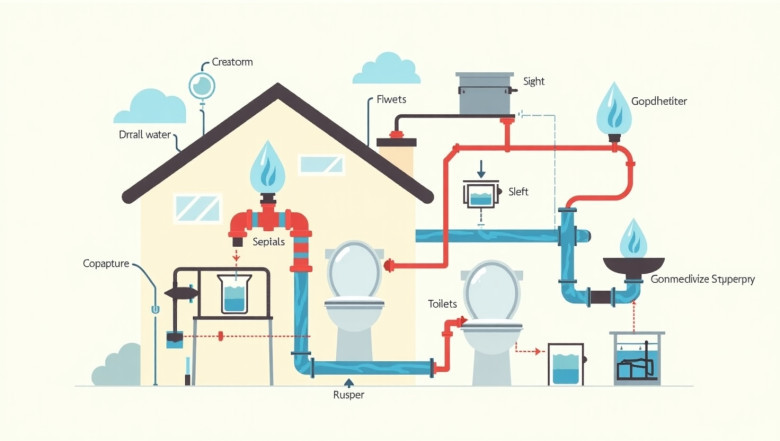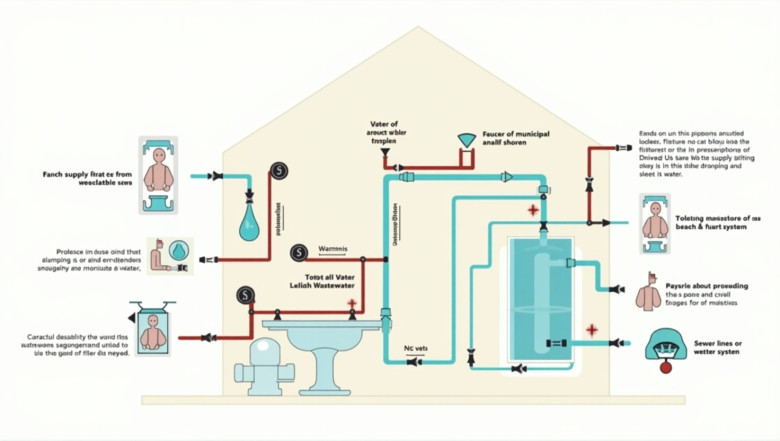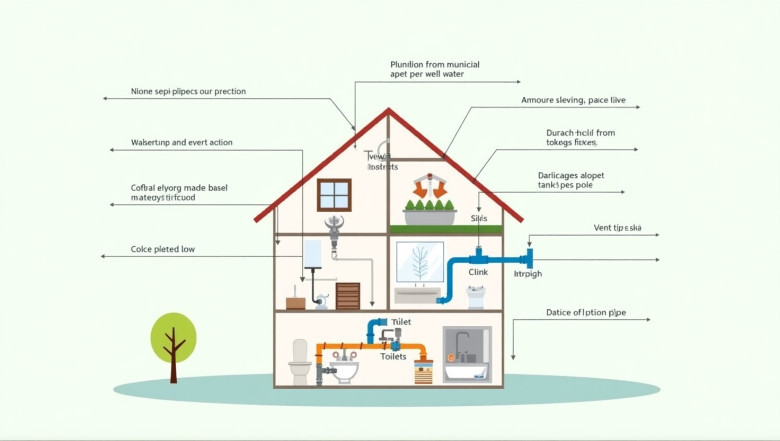views
Residential plumbing plays a big role in making your home comfortable and safe. But how does residential plumbing work? This guide will explain how plumbing systems in homes function, the key parts involved, and why proper plumbing matters.

What Is Residential Plumbing?
Residential plumbing means the pipes and fixtures that bring water into your home and take wastewater out. Home plumbing systems include everything from the water supply lines to the faucets and toilets you use every day. Understanding plumbing basics helps you care for your home better and avoid costly repairs.
Overview of Residential Plumbing Systems
A plumbing system in a house has two main parts: the water supply system and the drainage system. The water supply system brings clean water into your home through pipes. The drainage system removes wastewater and sends it away safely. Plumbing design in homes makes sure water flows where it should, and dirty water leaves without problems.
How Water Supply Works in Residential Plumbing
Water usually comes to homes either from a municipal water system or from a well. Municipal water is treated and sent through big water pipes under the streets. When this water reaches your home, it flows through water supply lines made of pipes like copper, PVC, or PEX.
Inside your home, pressure regulators and valves control the water pressure. These parts help keep the water flowing steadily without causing leaks or damage. If the water pressure is too high, it can harm your pipes and fixtures. The right pressure keeps everything working well.
Understanding Drainage and Wastewater Removal
After you use water, it becomes wastewater. Your home’s drainage system carries this wastewater out safely. Drain pipes connect to fixtures like sinks, showers, and toilets. Wastewater moves through sewer lines if you live in a city, or septic systems if your home uses a septic tank.
Proper venting is important for drainage. Vent pipes let air enter the plumbing system to prevent water from getting stuck and to stop bad smells from coming inside. This keeps wastewater flowing smoothly and your home smelling fresh.

Key Plumbing Fixtures and Their Functions
Fixtures like faucets, toilets, showers, and sinks connect to your home plumbing system. Faucets control how water flows out of pipes into your sink or bathtub. Toilets use water from supply lines to flush waste into the sewer or septic system.
Each fixture works with the plumbing system to make water easy to use and dispose of safely. When one part breaks, it can affect your whole system, so it’s important to keep fixtures in good shape.
Common Plumbing Materials Used in Residential Systems
Plumbers use different types of pipes in home plumbing systems. Copper pipes have been popular for decades because they last long and resist corrosion. PVC pipes are lightweight and easy to install, often used for drainage. PEX pipes are flexible and modern, making them easier to work with in tight spaces.
Each material has pros and cons. Copper is strong but costs more. PVC is affordable but less durable for hot water. PEX offers a good balance with flexibility and strength. Knowing what pipes your home uses helps when you need repairs or upgrades.
How Plumbing Maintenance Works
Regular plumbing maintenance keeps your system working well and avoids problems. Simple checks like looking for leaks or listening for strange noises help catch issues early. Plumbing inspection helps you find hidden leaks that could cause damage.
Leak detection is key because leaks waste water and increase bills. Fixing small leaks early saves money and protects your home from water damage.

Troubleshooting Common Residential Plumbing Issues
Sometimes, your plumbing may have problems like leaks, clogged drains, or low water pressure. Leaks can happen around faucets, toilets, or pipes. Clogs block drains and slow water flow, often caused by hair or grease buildup.
You can fix some plumbing problems yourself, like unclogging a drain with a plunger or tightening a loose faucet. But for bigger issues, calling a professional plumber is best. They have the tools and knowledge to fix problems safely and quickly.
Benefits of Upgrading Residential Plumbing
Upgrading your home plumbing can save water and energy. New plumbing technology includes energy-efficient fixtures and smart plumbing devices that control water use from your phone. Tankless water heaters provide hot water on demand without wasting energy heating a big tank.
Upgrading to modern plumbing improves your home’s comfort and reduces bills. Energy-efficient plumbing is better for the environment and your wallet.
Conclusion
Residential plumbing is a vital part of every home. It brings clean water in, removes wastewater, and keeps your home running smoothly. Understanding how residential plumbing works helps you maintain your system, spot problems early, and know when to call a plumber.
Proper plumbing means safer water, fewer leaks, and better comfort. By learning about plumbing systems, materials, fixtures, and maintenance, you can protect your home and enjoy reliable water flow every day.




















Comments
0 comment